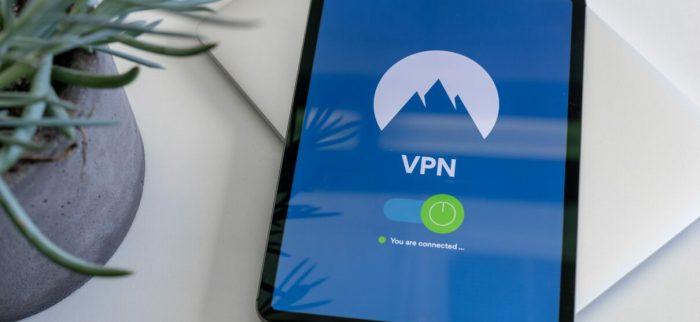With the rapid evolution of technology, the risks associated with online activities have become increasingly profound. Cyber espionage represents a serious threat, where sensitive information is stolen or monitored without consent. As a cybersecurity expert, I understand the necessity of implementing robust measures to protect personal and professional data. One of the most effective tools I rely on is a Virtual Private Network (VPN). This article outlines how I use VPNs to prevent cyber espionage, sharing strategies and insights accumulated through experience.

Understanding VPNs
A VPN functions as an encrypted tunnel between my device and the internet. By routing my internet connection through a remote server, it masks my IP address and encrypts the data I send and receive. This adds a layer of security, making it difficult for malicious actors to intercept my communications or determine my online activities. When I utilize a VPN, I am essentially cloaking my digital footprint, complicating potential espionage activities aimed at gathering my sensitive information.
Securing Public Wi-Fi Connections
Public Wi-Fi networks present significant vulnerabilities. I regularly find myself needing to connect to public networks, whether in coffee shops, airports, or hotels. These networks are often poorly secured, making them prime targets for cybercriminals. When I access a public network, my first action is to activate my VPN. This simple habit ensures that my data is encrypted, rendering it unreadable to outsiders who may attempt to intercept my connection.
Avoiding ISP Tracking
Internet Service Providers (ISPs) can monitor my online activities, logging the websites I visit, my connections, and other data points that can be leveraged for targeted advertising or, in worse cases, shared with third parties. By using a VPN, I prevent my ISP from tracking my browsing habits. This additional layer of privacy allows me to navigate the internet without the fear of being surveilled. It’s critical to choose a VPN provider with a strict no-logs policy to ensure that my data remains confidential and unmonitored.
Protecting Sensitive Data
As a professional dealing with confidential information, protecting sensitive data is imperative. I often work remotely, transferring files that require confidentiality. When I use file-sharing services or communicate with colleagues, I ensure that my VPN is active. This encryption secures any sensitive information transferred over the network, effectively shielding it from potential interception. The implementation of a VPN allows me to conduct business without jeopardizing the security of the data involved.
Accessing Restricted Content
In some instances, my work necessitates accessing restricted content or services that may be blocked in certain countries. Utilizing a VPN allows me to connect to servers in regions where the content is accessible, bypassing geographical restrictions. This capability not only fosters collaboration but ensures that I have access to all necessary resources without compromising safety or violating regulations concerning data access.
✅ Current deal: 🔥 Get NordVPN with up to 75% OFF! 🔥
Tips to Enhance VPN Security
While using a VPN adds a layer of security, I have found that there are additional practices to maximize its effectiveness and further minimize the risk of cyber espionage. Here are several steps I consistently take:
- Choose a Reputable VPN Provider: Always research and select a trustworthy provider that prioritizes user privacy and employs strong encryption standards.
- Enable Kill Switch Feature: I ensure that my VPN has a kill switch, which automatically disconnects my internet if the VPN connection drops. This safeguards my data from exposure during unforeseen disconnections.
- Use Multi-Factor Authentication: For added security on my accounts, I enable multi-factor authentication wherever possible. This adds another layer of protection against unauthorized access.
- Regularly Update Software: Keeping my VPN software and devices updated reduces vulnerabilities that cybercriminals could exploit. Regular updates are a critical part of maintaining robust security.
- Utilize Split Tunneling: When it’s appropriate, I use split tunneling to decide which traffic passes through the VPN and which does not. This helps in maintaining the necessary speed without compromising security on critical tasks.
- Educate Yourself on Cyber Threats: Staying informed about new threats and vulnerabilities equips me to adapt my security practices, ensuring I remain vigilant against emerging risks.
✅ Current deal: 🔥 Get NordVPN with up to 75% OFF! 🔥
Conclusion
In my journey as a cybersecurity expert, I have consistently noted the importance of proactive measures in combating cyber espionage. Implementing a VPN is one of the most effective tools in my arsenal. The combination of encryption, IP masking, and secure remote connections ensures that my sensitive information remains confidential. Alongside diligent practices such as choosing a reputable provider and maintaining software updates, I can safeguard my digital activities against prying eyes.
As technology continues to advance, the landscape of cyber threats will undoubtedly evolve. Therefore, it is crucial for individuals and organizations alike to prioritize their cybersecurity measures. By utilizing a VPN and adhering to best practices, I have fortified my defenses against potential risks, thereby reducing the likelihood of falling victim to cyber espionage.
Affiliate Disclosure: By clicking on our links, we may earn commissions at no additional cost to you.